Collie Buddz ADD
Collie Buddz - The Take It Easy Interview
09/29/2023 by Steve Topple

Bermudian artist Collie Buddz has triumphantly returned with a new album, four years after his last one. Take It Easy is a masterclass in rich, enigmatic, and inventive Reggae-based music – delivering some strong narratives along the way.
But what took him so long to release it? What really went on with his split from Sony? Does he really think we can all just ‘take it easy in life’ – and does he like the latest incarnation of the culture: Trap Dancehall? Reggaeville caught up with the superstar to talk about all this and more.
Collie Buddz! Thanks for speaking to Reggaeville! Think of this as us just chatting, yeah?
Thanks for having me – and sounds good!
So, for my money Take It Easy is better than Hybrid.
I’m with you there, too!
Are you?!? Why are you with me there?
It’s newer. Hybrid was self-produced, I did all the instrumentals, [but]… you need other people in a project to give it all the other stuff. Doing it as one person, it’s done – but with somebody else, there they come and be like ‘Hey, how about you add this’ - and I didn’t have any of that on Hybrid. So yeah, I’m with you on that. I was very critical of myself with Hybrid. Doing it by yourself was a tough mission. I wouldn’t do it again, but it was on the bucket list. I enjoyed Take It Easy. I think it’s got a nice mix of everything, and like you said, a lot more attention to detail.
It's a brilliant album. How long has it been in the works?
It’s been on the go since 2020, the earliest track is Brighter Days. I’m always pretty slow with album releases, I like to take my time and we tour a lot – and off tour, I have my family, and it’s hard for me to get motivated to be creative sometimes.
It’s not that long, though – two years.
If you compare it to other artists, the goal is maybe an album a year, maybe two years. So, I’m a little late on the game – it’s been four years since the last one, and that’s pushing it a little bit, in retrospect, compared to most artists. But I like to take my time with things; quality over quantity, that’s the main goal. If I don’t like something it will never come out. My manager tries to push me on stuff, we have so much in the archives that probably will never get released – unless he just keeps pushing my button and I’m like ‘Fine!’. But as an artist, once you listen to something for so long the fun dies, it becomes work-work – and it loses its oomph. When I listen to it back… I’m never happy with it. But it’s all good.
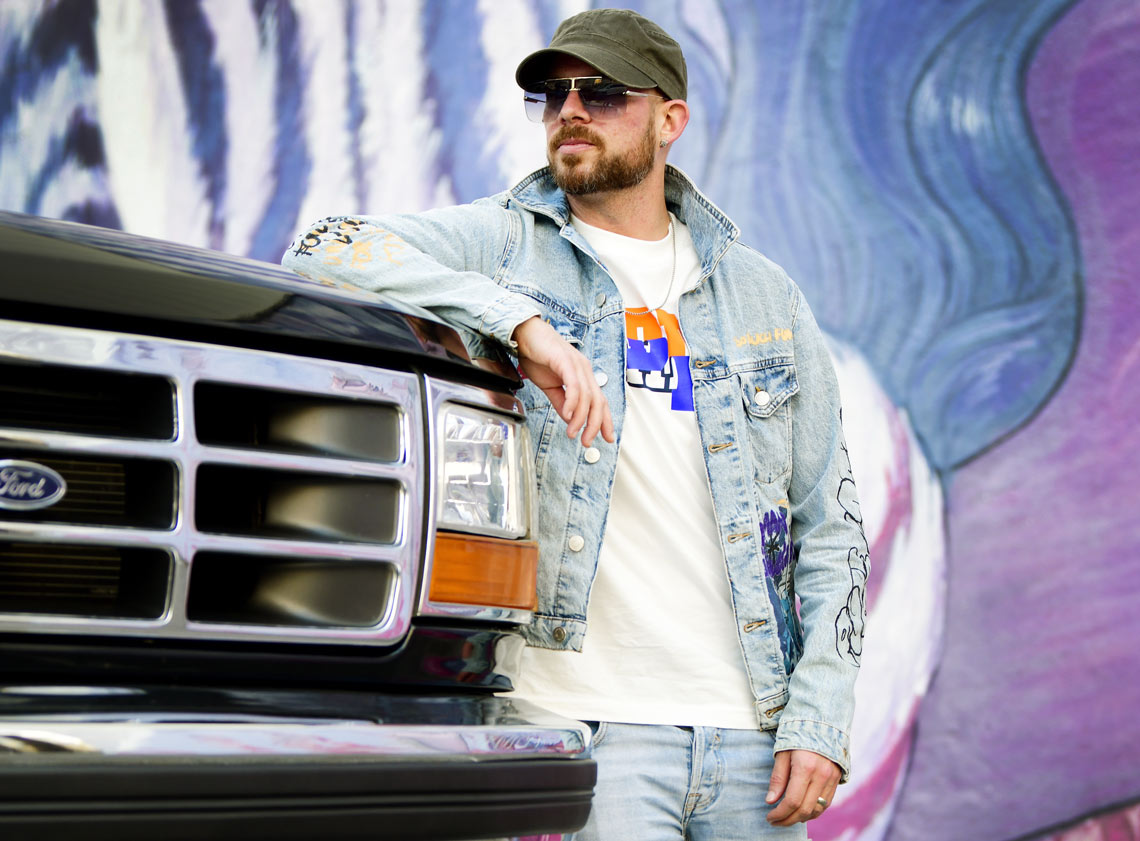
Do you think there’s a pressure in the industry to release music quicker these days?
Yeah, there’s a pressure of staying relevant. It’s a big thing – out of sight, out of mind, so it’s good to constantly release something, that’s why we released singles. I’m not good with pressure – my manager would argue that – but it’s not as fun if you don’t have all the time in the world to create something. But I’m in a good space where I have the luxury of taking my time of things. We tour a lot, so financially that keeps food on the table. I’m not bound to the pressure to release something. I have the leeway to create – and I appreciate that. I’m blessed in that sense.
You have a solid team you work with now, as well – including producer J-Vibe – but there are some guest producers.
We have Fatbabs out of France. The beauty of social media, he just hit me up and said ‘Hey, I’ve got a beat for you’. I loved the beat and was like ‘Let’s go’, so I must thank social media for that, and then Bobby Konders on Twisted Agenda.
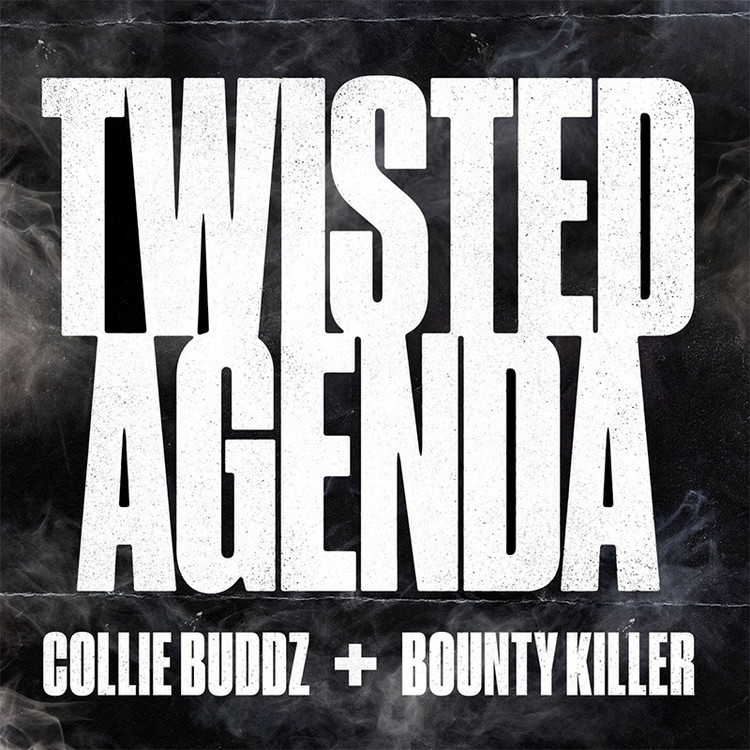
There clearly must be a good relationship between you and J-Vibe – for you to go from full self-production on Hybrid to then trust someone with your creative vision across almost an entire album?
We have a strong relationship. During the pandemic, we were bouncing ideas off each other, and his workflow is very good. If he comes up with an idea, sends it to me, I might put some things in it and send it back, then he adds things – it was such an easy venture working together. In the studio, it’s even quicker… I can play some chords and stuff, I can come up with melodies, but J-Vibe is an amazing keyboardist – so it’s just easy, he’s got that ear.
We made Take It Easy [the track] in a studio in California, and he and the band were messing around and came up with that. I didn’t touch that – that was all him. I felt that one, but it took me almost sixth months to get it. I was sitting on the riddim – and I knew it had to do something good on it, it deserves it. Ronnie my guitarist played the guitar lick, and Roots my bassist played the bass – so our whole band made this, and most of the riddims with J-Vibe.
So, I feel blessed to have such a good team. Me and Roots have been touring for over a decade. It’s strange, this far into my career, that everything feels like its coming together and on the right path…
Why do you only now feel things are coming together?
I’ve gone through a lot of musicians, and a lot of the times we never got to work together in the studio – it was produced from here, from there, and I was just singing on beats and then the band would have to emulate it live. Now, it’s the band playing it – so when we go to play it live, its flawless – maybe even better. I’ve never had that before. It’s exciting to get on stage knowing it’s going to sound exactly like the record. That’s what I mean by it’s all coming together. We tour a lot, and we want things to sound like the record – so what better way than to make all the songs together. We’re all like-minded musicians – professionals at the highest level, and that excites me. We’ve got so many more riddims – I don’t want to say it too loud, but we’re already started work on the next album. That doesn’t usually happen with me - it takes years to make a couple of tracks. We all get along so well on the road – it’s like family.
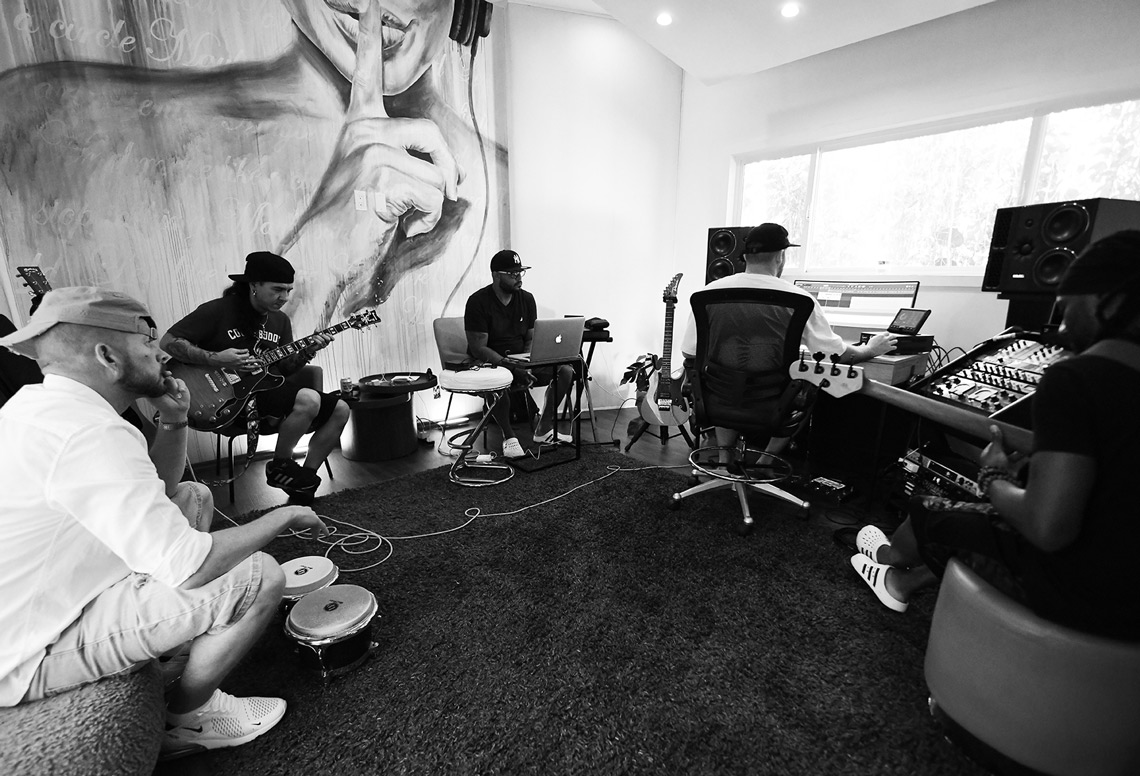
So, what’s really happened is at the start you had big commercial success – but it’s only now, as an artist, that you feel like you and your vision is being properly fulfilled. Yes?
That’s exactly what it is. Spot on. It’s a great feeling. I’ve never had that before. Especially at the beginning. When I was signed to the label they wanted commercial hits, and I love doing all types of music, but I wanted to stay more Reggae grounded. But [at the time] Dancehall was popping, the fast-paced poppy songs were. Now, I’m in a place where I can do the music I want to do, I really love, which is Reggae. I love Dancehall too, and fast-paced songs, but I struggle nowadays with lyrics that have no substance, which can be the poppy, Dancehall songs.
You went very publicly independent from any label with Hybrid. Was that a real turning point for you with what you do creatively?
It was a huge turning point – but it was actually with Good Life in 2017. We parted ways in 2016 with the label. 2005 I got signed, first album came out in 2007. We parted ways in 2009, but I got resigned back to Sony in 2014, but we parted again in 2016. I was recording Good Life and I felt that everything I was putting out, they weren’t pushing it. They didn’t see the vision, and they’re not going to spend money on an artist who doesn’t want to go their route – so, I really pushed to get off the label, I was sick of it. And I wasn’t going to put out another album where they keep the masters and I owe them some ridiculous budget they said they spent on marketing. My experiences with the label – in the beginning it was OK, as I had a song that was doing well, but when I wanted to push songs that I thought would do well, it didn’t fit in their agenda. So, my experiences with a major label were 80% negative. I’ve only just recouped on my first album in 2020.
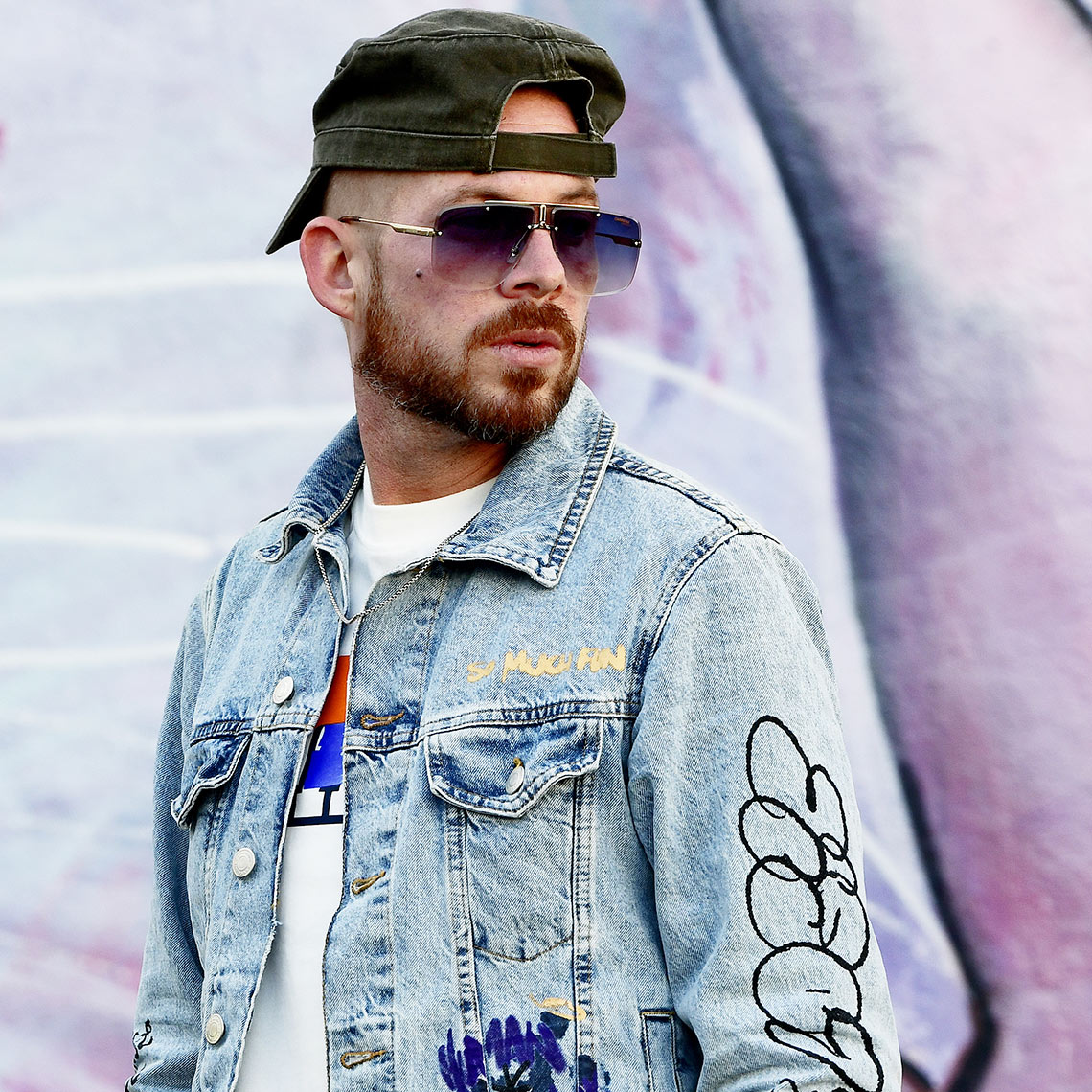
Oh shit.
Yup, 2020. That’s 13 years to recoup on the first album. It doesn’t make sense. These independent albums, we’re still spending a lot of money on marketing, but we recoup in the first eight months.
As an artist, if it’s taken that many years to recoup on a project you put your whole self into, does that undermine the creativity?
It seems like a really long time for something that did really well. But I kind of left that back with Sony – it wasn’t at the front of my mind. I knew it would take a long time – and their marketing budget was tiny. They said they spent $1.3m on marketing, so that’s what I had to recoup back. I can’t see it took 13 years to get that back. It left a bad taste in my mouth. We’re trying to buy back my masters, but they’re not going for that. If you did the math - $1.3m to recoup – so they made $10-$11m, because my $1.29 per album was going back to recoup, so they’re making $9 on each album.
Leaving was the best decision you ever made, surely?
Of course. I own everything, we can licence everything, we can do live albums – anything we want. Great decision, and I would recommend it for all artists out there. If something’s popping, and a label comes to you with some golden deal with some number on paper – remember, you can make that by yourself, for yourself. Don’t give in to pressure – if they come to you with a deal, it means you’re doing something right, so keep doing it – you’ll be happy you did.
We’re not supposed to be talking about the past, anyway – we’re supposed to be talking about the new album [laughs] – I warned you I tend to just rip my questions up!
[Laughs] Right!
OK, so you’ve always been eclectic – and you’ve done it on Take It Easy, where you visit Afro Swing as well as Afrobeats. However, Hip Hop runs through the album. Being this eclectic artist, is it natural or a conscious part of creating an album?
I have a good ear. In Bermuda, with the Reggae scene also came the Hip Hop scene, and a lot of it was from New York… That’s always kind of been mixed up. Back in the day, Reggae and Hip Hop – you couldn’t go to a dance with them not playing Hip Hop and Reggae, they were brothers in the scene. I was more into the Reggae, but Hip Hop was always there – some of the best remixes were on Hip Hop beats. In the 90s this was dominant… When we were working on the B Real track, J-Vibe brought this sample and we said ‘We could do this on a Hip Hop beat’, and it worked. My first album was very Hip Hop influenced.
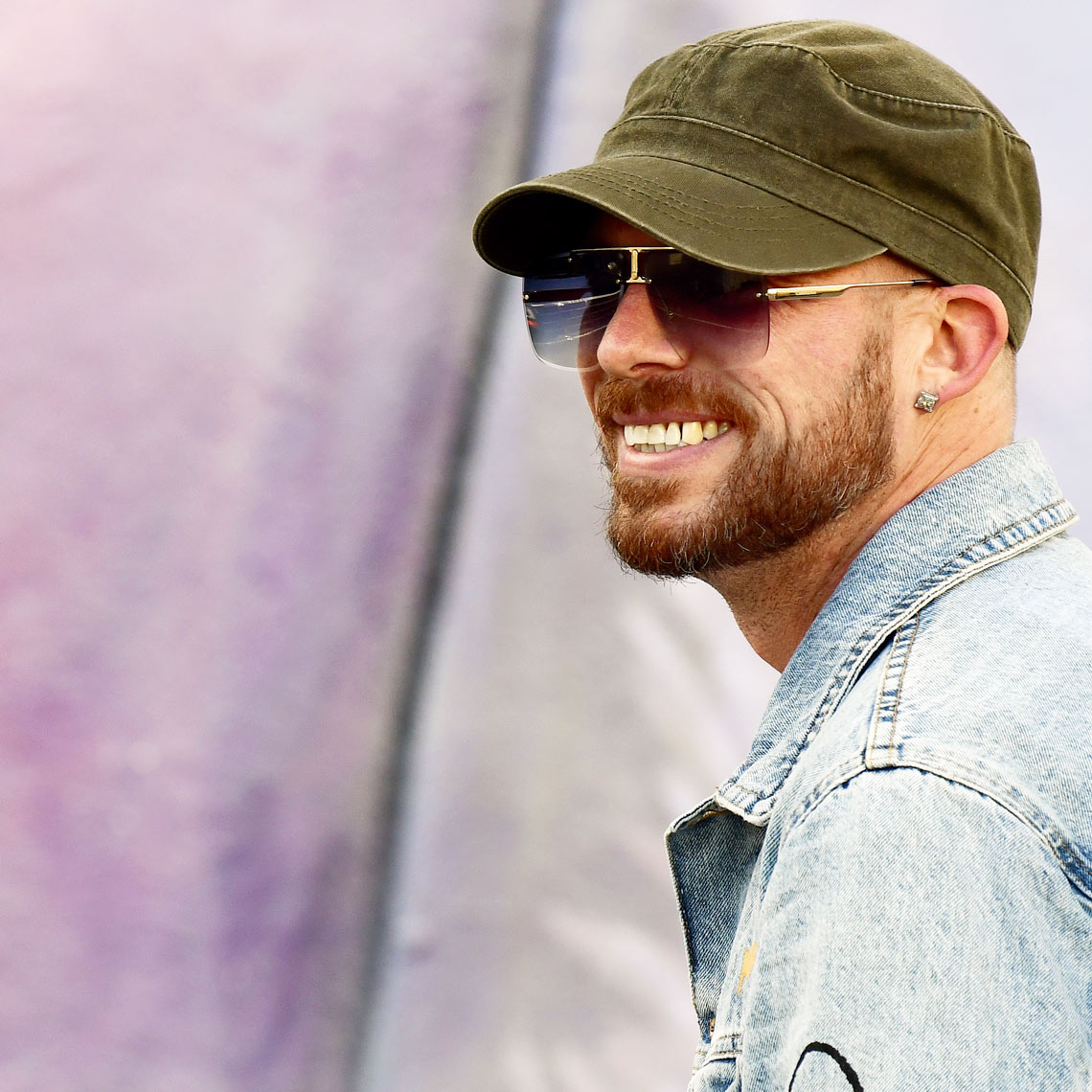
You mentioned B-Real. How did that – a Cypress hill legend – come about?
For real. We were going through some ideas, and my manager Igor said, ‘How about Cypress Hill, B-Real?’ and I was like, ‘Yo! That could be dope’ – because it was all about Cali weed. So, we sent it to him, and he liked it, and bang – rest is history. It’s pretty simple nowadays, take a little phone call, do it digitally – we don’t even have to be in the studio together. It’s a tribute back to my first album as well – because I had Krayzie Bone on there, Busta Rhymes on the remix – with that nostalgic feel to it.
OK so, on top of the music – there’s this brilliant narrative line that runs through the album. Between the opener, Take It Easy, and the closer, Hold Firm, they sum up the entire album. Spoiler: I get nervous telling an artist what their lyrics mean [laughs] – but on the album, you’re saying overall that we all know the system is screwing us, but hold firm, and navigate life the best you can – don’t let it grind you down. Am I right?
[Laughs] Yeah, you’re spot on there. I’ve been very nostalgic in the past couple of years, and I’ve been listening to a lot of albums from the 90s – Luciano, Anthony B, Sizzla - and they have a similar formula. They talk about the system and how things are – but they also have uplifting tunes, ‘It’s gonna be alright if you do this’… that’s what I grew up with, and now I’m getting older I find it hard to talk about fluffy stuff – rainbows, butterflies, y’know? I want to have an edge to everything I say about – even on Take It Easy: ‘Leave the drama alone, I don’t want any drama in my life’. Just addressing things that make sense in day-to-day life – but bringing up issues that are darker, tougher to swallow. But I think you’re spot on. That’s the only way I can write tunes now. The reality, people’s reality. Everyone’s life is different, but everybody’s going through lots of things – struggling physically, mentally – but we’re all here together. If I can bring some positive light, and some insight people haven’t really thought about before – that’s the mission.
Exactly. There must be balance between positive and negative. If it’s all negative, people may not listen – there must be light with the shade to bring people in.
And then throw in a weed song [laughs] and then, you’re good [laughs]. The perfect balance.
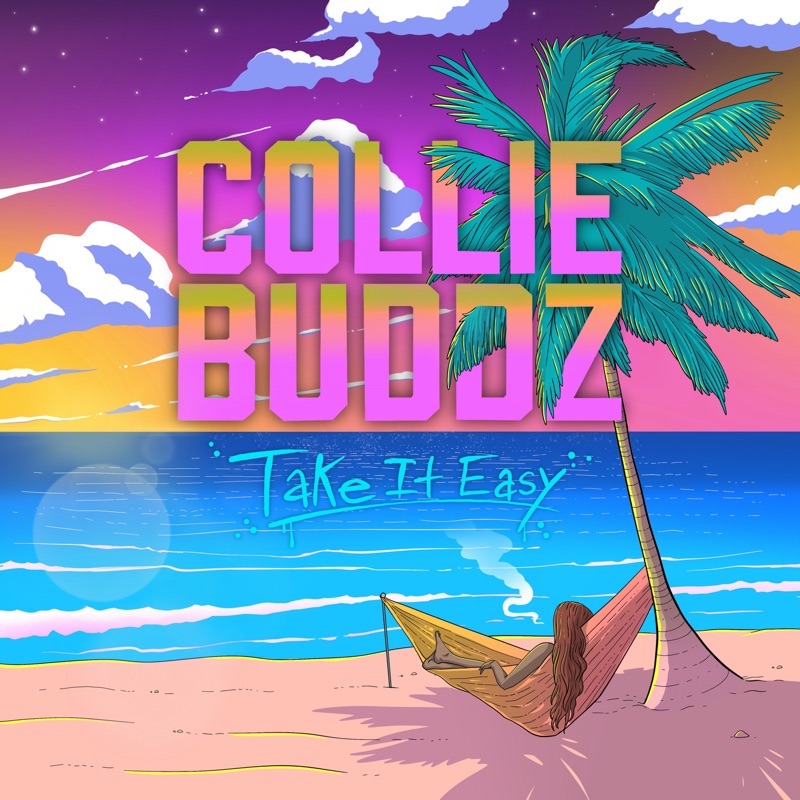
True, though [laughs]. So, that’s what I felt the album was saying, anyway.
You explained it a lot better than I would [laughs]. It definitely came together, but all my songs are going to be like that – obviously I’ll do some fun things now again, but for the majority I just like to be real. I didn’t think about how you said about Take It Easy and then Hold Firm – but I like it. I’ll run with that. The next time somebody asks me, and I’ll explain it like you did [laughs].
Well, it shows what a genius you are!
[Laughs] It was actually all management: They were like ‘Hey, how about Hold Firm at the end?’
Yeah, but if it wasn’t right, something would have told you not to do it!
Yeah, for sure [laughs].
I want to pick up on something else. You said you’re feeling nostalgic at the minute. We’re similar ages – I’m 42 and you’re 39…
I’m not – I’m your age, 42. I dunno about Wikipedia saying that; somebody did that…!
Oh OK! So, we’re both born in 1981…! Why do you think you’re feeling nostalgic? Is it your age? The world? What’s going on to make Collie Buddz nostalgic?
Age definitely has something to do with it. I’m not into music nowadays as I was. I’ve lost track. When you’re young, you’re constantly around the newest music, you’re going to clubs, and you experience new music… That’s kind of fizzled out in the last five-six years. I think its age. I love how music changes – it’s not that I don’t like what’s out now, but I’m not feeling it like I would. And I’ve listened to a lot of music. Sometimes new music is out. Sometimes I don’t want to even play music but if I do it’s nostalgic. My wife’s the complete opposite – she can’t even do work without music, and it’s gotta be loud too [laughs].
There will be a few songs a year that I really like, and I’ll listen to those. But there’s so many releases, so many new artists – it’s overload. Back in the day we were spoon fed one thing at a time, and now I can’t keep up. I think that’s part of the age too. But when I hear something really, good, or find some independent band… that’s how I get my music now. I’m not into the whole, Top 40 Pop stuff – that gives me cringe, it all sounds the same. But it probably did back in the day too! People who were 40 when we were young and listening, they were probably like ‘Hmm, what you listening too!’. Now, I just wanna feel like I did when I first heard music in 95.
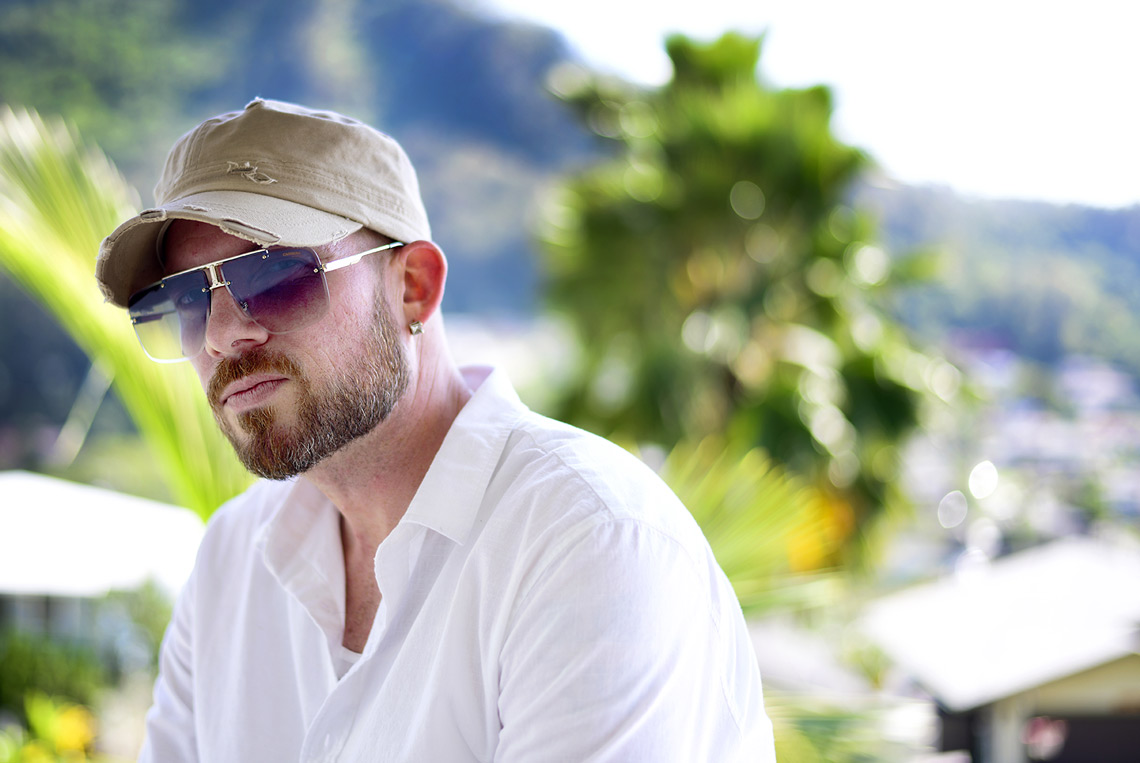
People listening to new music now, can also argue it was shit back in our day! [laughs] Music is objective. We didn’t have access to what they do now. You can go and listen to someone on the internet who has four followers and still like their music. We never had that. We had the corporate frigging giants feeding us the songs. But also, music was also more musical back then. Now it’s all just samples, and similar drumbeats, for every song. There’s only a handful of artists out there – like Kendrick Lamar. He never sounds like anyone else.
Dancehall though, I struggle with right now. Dancehall in the early nineties – everyone had a powerful voice. Now, it’s so studio – you can press things now, and it makes them sound very loud. Where’s the Bounty Killer now, singing out? Now, they all sing close to the mic – and you can see it when they get on stage, they struggle. They have to sing it damn near an octave higher to get that energy.
It’s struggling internationally, too. Afrobeats came in and took that spot. But I feel like it’s going to come back – it just needs a revamp. But I’m old now – what do I know? [laughs].
Well, you say that, so am I…! It’s interesting, I listen to a lot of Trap Dancehall, because I like it but also because it’s my job. Do you think if there is a watering-down of talent in the industry it is down to streaming, and the fact anyone can put out music now?
I think it’s that, but more the easiness that anyone can go to a studio or have a laptop and mic – and everyone’s now an artist. Once that’s the case you can use plug ins to make someone whispering sound like they’re screaming. At the same time, you can barely hear them in the studio. You can make a sick track with anything – as long as you’ve got some sort of flow, melody, and lyrics, then it’s good. But the Dancehall I know – there was hardly any plug ins, no autotune – you could hear the raw power. Killer was pushing every word to the limit. Unless I’m bugging – I don’t keep up – but there’s no artist that’s doing that right now.
To play devil’s advocate, though – are we back to our age, and is it a natural progression of Dancehall? There were probably pioneers of Dancehall in the late 70s/early 80s who frowned at what you and Killer were doing in the 90s. Dancehall is also becoming quite split: there’s this huge debate around Trap Dancehall; artists like Burna Boy who’s forged this link between Africa and the Caribbean but it’s not really Dancehall; Stonebwoy who’s created his own genre… Is it just another natural progression, and we’re a bit old…?
[Laughs]. Yeah, I agree with that. But Dancehall to me was a certain style of beat, and that went on for decades…
The beat was ‘oneeeeee-twooo-and-threeeeee-fourrr-and’ – and that’s it!
Yeah! That. And that was Dancehall. Nowadays, there’s not the beat thing – you don’t know when the kick or snare is going to come. It seems more Caribbean Trap, now – they’re using the sounds from Trap for the drums, and I think that stems from Dancehall always being a part of Hip Hop – and maybe some producers thought that was the only way to keep up. Don’t get me twisted - it sounds wicked, I love some of the beats. But I can’t listen to it for a long time, and you can’t groove – you can’t wind up on a girl to it.
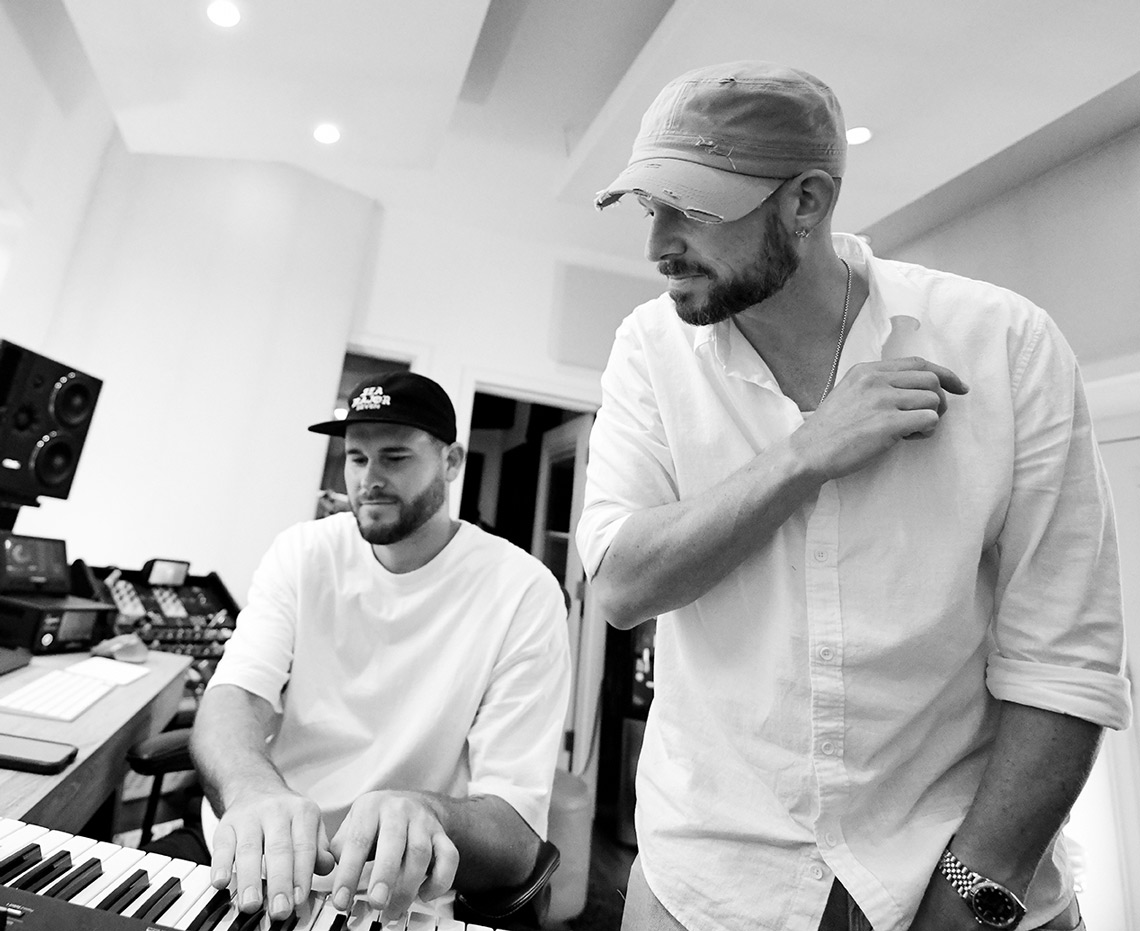
That’s exactly what my girlfriend says – you can’t dance to it.
Exactly – it’s for listening purposes. I think some of the songs are just to listen – and when you see artists live it’s to see them. The songs going to be playing in the background, none of these guys are going to be playing with live bands. It’d be damn near impossible – so good luck with that [laughs].
[Laughs] Look, we’ve been talking for nearly an hour, so I need to start wrapping this up…!
An hour? You weren’t joking when you said we’ll just be chatting [laughs].
That’s how I roll! OK so what’s in store next for Collie Buddz?
So, we’re doing a world tour next year called the Take It Easy World Tour, starting in February and going to the end of the year, trying to get as much of the world in as possible.
Look, the album is fantastic – I hope it’s very well received. It deserves it musically and lyrically, a strong complete package. And thank you so much for speaking to Reggaeville – it’s been great!
I appreciate you, Steve. Bruh! Bless up man! Take it easy!









